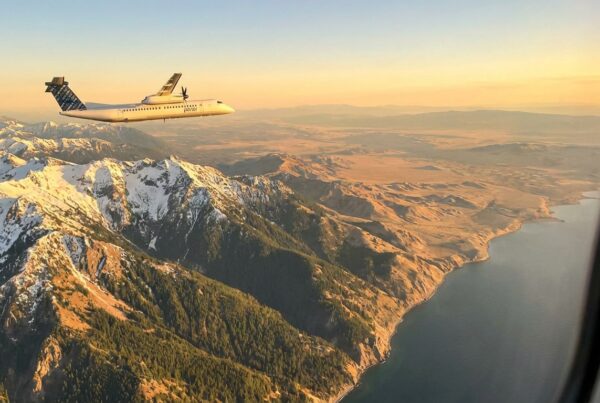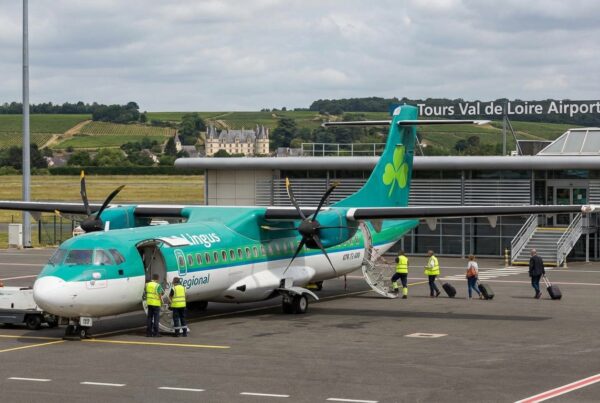The parent company is gearing up to tighten its organizational cords to promote greater integration of its branches. At the heart of the plan: Lufthansa refocus strategic functions on FrankfurtThe Group's strategy is based on a combination of acquisitions and profitability targets. Between preserving commercial identities and seeking economies of scale, the maneuver raises operational, social and competitive issues for all concerned. Swiss International Air Lines, Austrian Airlines and Brussels Airlines.
Lufthansa refocuses its subsidiaries in Frankfurt: less autonomy for Swiss, Austrian and Brussels
According to revelations in the German business press, the strategy aims to bring previously decentralized decisions together at headquarters. The project could mean the end of certain margins of action specific to Swiss International Air Lines, Austrian Airlines and Brussels Airlineswith the transfer of support and sales functions to Frankfurt.
This centralization follows on from the European agreement on the integration of ITA Airways, and is part of a stated desire to improve network coordination in the face of fare pressure from low-costs and the rise of alternative long-haul carriers. Pooling sales, fleet planning and the network is heralded as a lever for cost rationalization.
Red thread: a fictitious commander, Captain MartinFor him, this promises better synchronization of rotations, but risks eroding local adaptability. This example illustrates the main dilemma: gaining efficiency without diluting the brands' local footprint.
Insight: centralize to optimize, but success will depend on the ability to preserve the customer value specific to each subsidiary.
Operational synergies: between Eurowings, Lufthansa Cargo and Lufthansa Technik
The integration effort should make it possible to pool fleets, maintenance workshops and cargo capacities. Lufthansa Technik and Lufthansa Cargo are key elements of this mechanics, likely to offer significant unit gains in maintenance costs and parts management.
Next door, Eurowings is repositioned to counter the rise of low-cost offers on medium-haul routes, while initiatives such as the creation of a regional subsidiary had already anticipated a strengthening of the intra-European network. Comparable operations at other groups, documented on specialized websites, provide useful lessons on phasing and human risks. (recent news).
A case in point: greater coordination between maintenance and planning has reduced turnaround times on certain lines, improving punctuality without increasing the fleet. The cumulative effect promises real savings if governance remains clear.
Insight: technical synergies exist, but capturing them requires strong operational governance and a measurable roadmap.
Financial consequences and the need for profitability: how Lufthansa aims to break even
The group has already initiated more than 600 initiatives aimed at reducing costs and boosting revenues, following years marked by macroeconomic uncertainties. Earlier losses served as a wake-up call, prompting management to step up restructuring plans to restore operating margins.
The creation of a regional subsidiary and the review of hubs are part of a return to profitability, comparable to recent adjustments in the sector (see examples of other carriers and strategic moves). interventions and restructuring). At the same time, the commercial performance of other European players (such as Air Europa) reminds us of the importance of a dense, efficient network.
For employees, the challenge is to translate these savings into concrete action: optimizing rotations, centralizing purchasing, or regrouping back-offices. The links between rationalization and service quality will have to be closely monitored to avoid any weakening of the customer proposition.
Insight: financial viability will depend on the ability to transform savings into targeted investments, not just budget cuts.
Competitive pressures and European reactions: towards a new sky deal
Competitively, Lufthansa is confronted with a landscape where Air France, KLM and Turkish Airlines play decisive roles, each adapting its model to post-pandemic realities. Alliances and codeshares are becoming increasingly important to defend market share and offer an alternative to consolidated networks.
External disruptions - such as the high cancellation rates observed on certain continents - also call for greater operational resilience; recent studies on African performance warn of the importance of a reliable network. (cancellation rate). Regulatory dynamics and employee reactions will be key variables, illustrated by case law and fines paid by companies committed to social reform. (example Qantas).
At the same time, industrial moves such as airport asset disposals and infrastructure redevelopments are a reminder that the operating environment is changing fast. (airport transactions) and companies have to adapt locally (example Zurich).
Insight: group integration must be accompanied by a strategy of intelligent European cooperation to maintain competitiveness against historical and emerging rivals.




